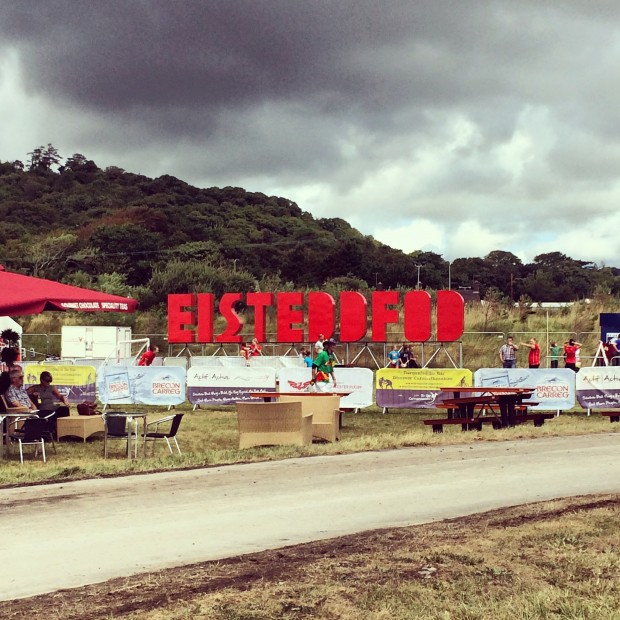From an Englishman’s perspective (and someone whose second language skills extend no further than uno, dos, tres in Spanish… or is that French?) spending a week at the National Eisteddfod is an extremely daunting prospect. It was with a mixture of intrigue and alienation, then, that I travelled to the Maes and attended the English-speakers welcome tour in the hope of gaining an overview of the festival and an insight into what these nine days are really about.
It doesn’t take a tour for one realisation to set in; this place is huge. Set over three fields in Llanelli, the cliche that there is “something for everyone” has rarely been so apt. From drama and art to live music and science, it’s clear that the Eisteddfod values participation from all members of its audience in the variety that it offers them. However, this contributes to a generally overwhelming first impression, so it was a relief when our bilingual tour guide started to move through the fields and explain each section, one at a time.
Whether it was a gallery of album covers or a tent full of dancing children, the atmosphere was one of consistent celebration, and I got the feeling that it would take more than a brief torrent of rain to dampen the mood. Even though the day had only just begun, everyone appeared to have adopted the festival spirit and I was forced to look blankly at a juggler who stopped me in my tracks to talk to me in an excited form of Welsh.
After making my apologies and continuing with the tour, I felt an unfamiliar feeling that had been manifesting itself since I entered the Maes; I was – and am, as I sit here typing now – an outsider. I’m used to feeling like I belong in whatever I community I enter into (thanks to at least a shared language) but here I’m a true minority and it’s an unexpectedly uncomfortable experience.
Regardless of my own reaction to the new situation, I couldn’t help but respect the notion that culture should be enjoyed and perhaps this is something that the English could learn from their Western counterparts. I’ve never been to anything like this before, but that’s because I (along with the rest of England) have never had the opportunity to.
As the first day draws to a close, it’s obvious that the Eisteddfod festival is more than a few tents in a field. It’s a coming together than represents a unified Wales, and a unique event that encourages cultural pride – all while providing its people with a platform to collaborate and share their nationality.
And regardless of what the rest of the week has to offer (in terms of events and my own integration), what other festival can honestly boast the same?



Comment on this article